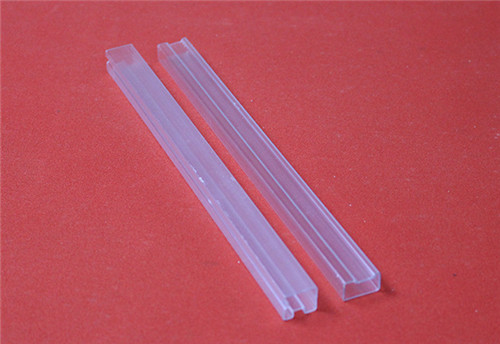
Phone Number :
07 08, 2023

The mechanical performance of PVC hose material plays a crucial role in determining its durability and reliability. Several tests are employed to evaluate its properties, including tensile strength, flexibility, and burst pressure. These assessments ensure that the material meets the demanding requirements of various applications.
Tensile strength testing is conducted to measure the material's ability to withstand stretching forces without deformation or failure. The PVC hose material is subjected to gradually increasing tension until it reaches its breaking point. This test provides valuable information on the material's maximum load capacity and its ability to maintain structural integrity under pressure.
Flexibility testing determines the material's resistance to bending and its ability to maintain its original shape and flow characteristics. The PVC hose material is subjected to repeated flexing, simulating real-life conditions. This evaluation allows for the identification of potential weak points, such as cracks or delamination, which could compromise its performance and reliability.
The reliability test for PVC hose material involves subjecting it to extreme conditions to assess its performance and longevity. This ensures that the material can withstand harsh environments and maintain its functionality over an extended period. Several reliability tests are commonly performed:
In this test, PVC hose material samples are exposed to different environmental conditions like extreme temperatures, UV radiation, and chemicals. By analyzing the material's physical and chemical properties after exposure, we can determine its resistance to degradation and aging. This assessment is crucial in ensuring its long-term reliability.
The PVC hose material is subjected to high pressure to evaluate its burst resistance. By gradually increasing the internal pressure until failure, we can determine the maximum pressure the material can withstand. This test is essential to prevent unforeseen failures under working conditions.
The abrasion test is conducted to assess the material's resistance to wear and tear caused by friction. The PVC hose material is subjected to repetitive rubbing against a rough surface. This evaluation helps in identifying potential weak spots, which can lead to leakage or reduced performance over time.
Thorough mechanical performance evaluation and reliability testing of PVC hose material are essential for ensuring its durability and functionality in various applications. The assessments provide valuable insights into the material's tensile strength, flexibility, burst pressure, and ability to withstand extreme conditions. By conducting these tests, manufacturers can optimize the material's design and production processes, resulting in reliable and long-lasting PVC hose products.